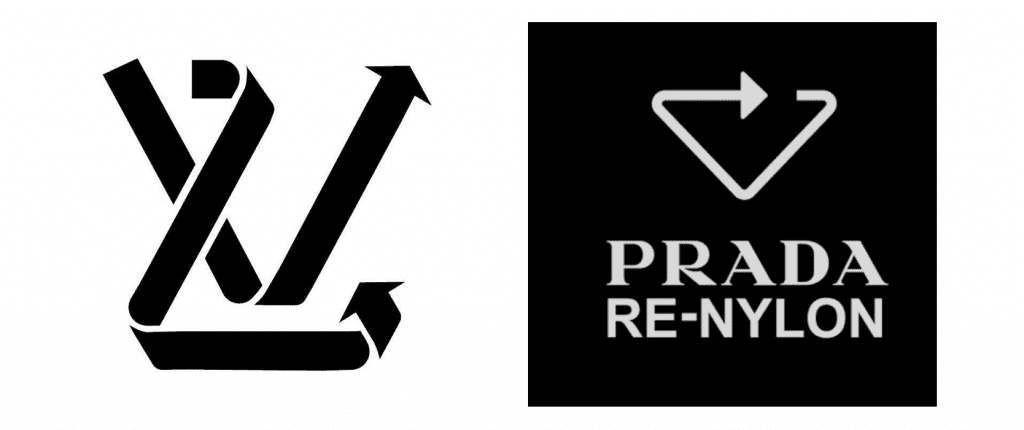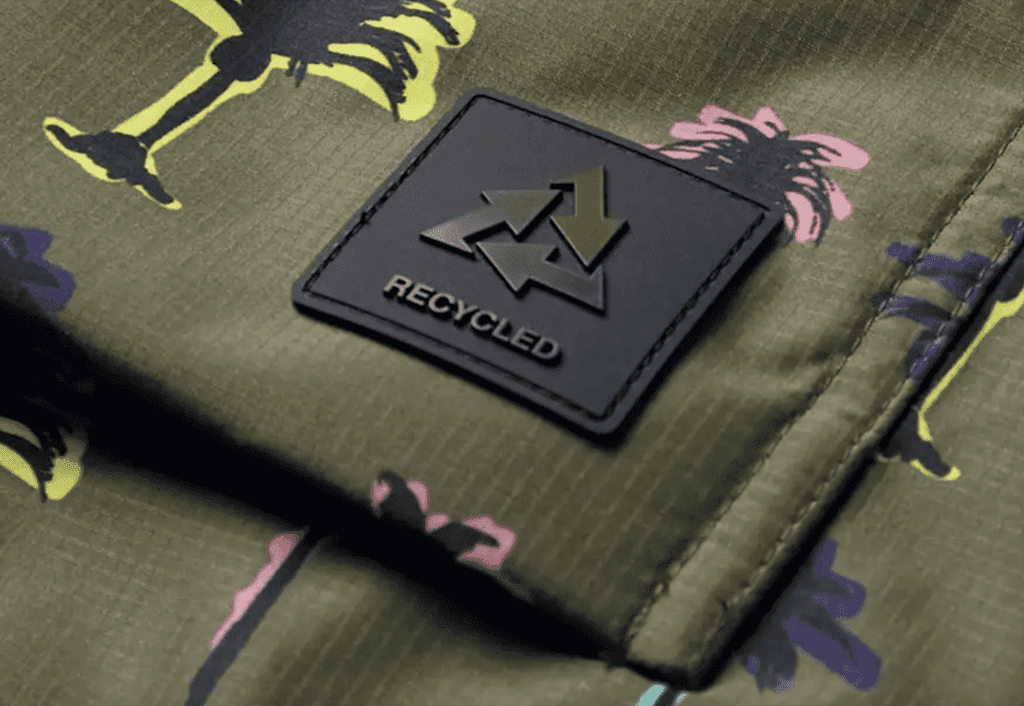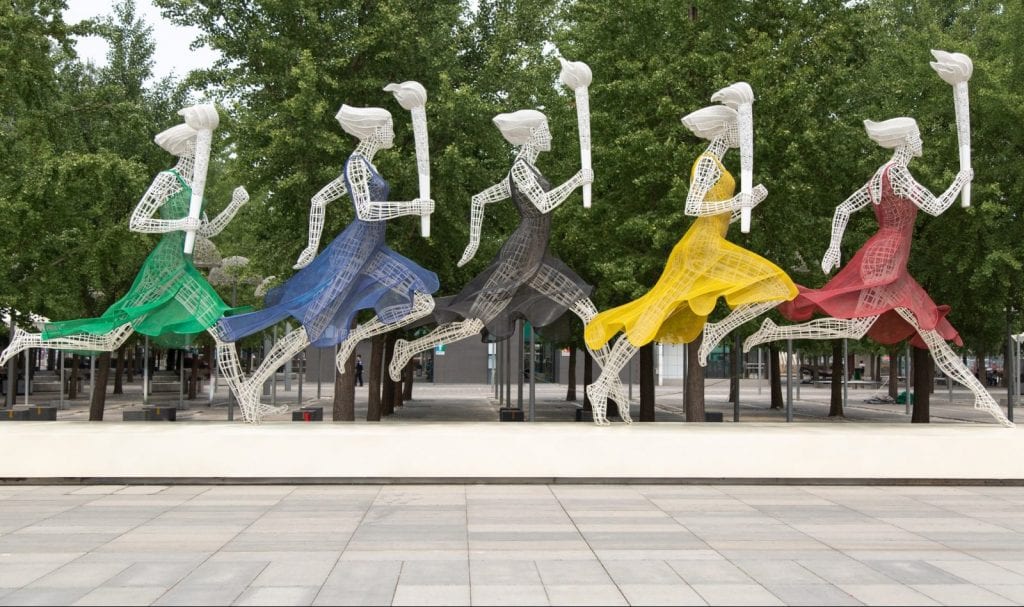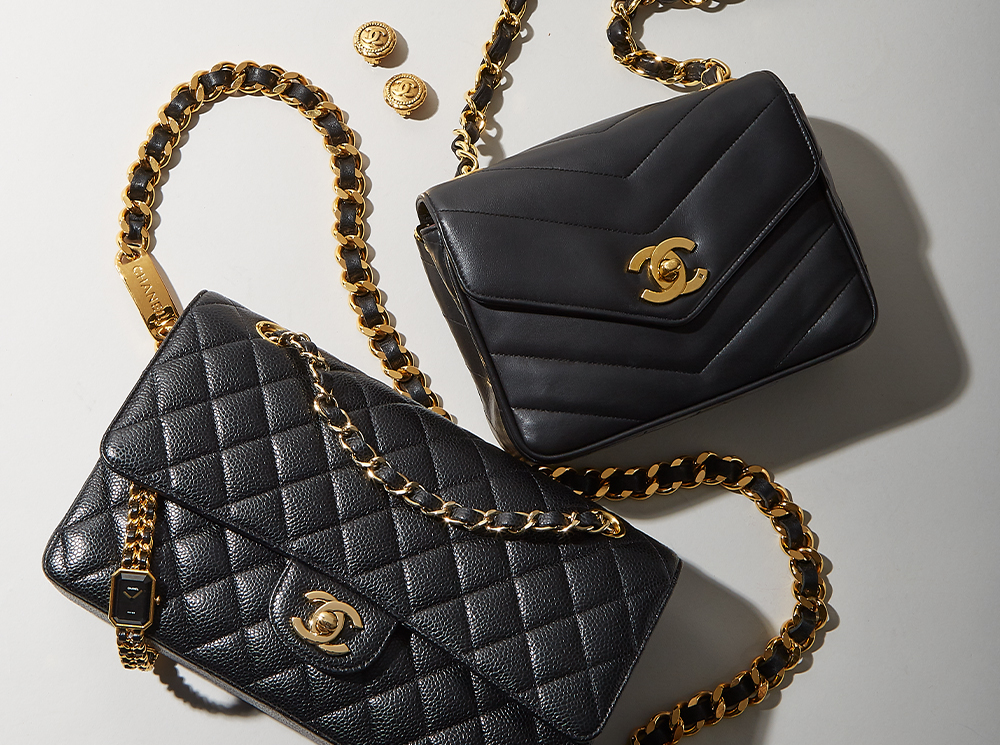From “sustainable” capsule collections to sneakers made from recycled plastic, companies across the apparel and accessories space – and beyond – are readily looking to cater to rising consumer sentiment around the need to consume more consciously. The surge in consumer and investor consciousness when it comes to Environmental, Social, and Governance (“ESG”) elements of businesses across the board is helping to drive a burgeoning sustainability market that was slated to reach $150 billion by 2021, according to KPMG, with fashion playing no small part, as “sustainability” continues to represent as “a key pillar of business growth” no matter the industry.
The result of the overarching increase in companies acknowledging the power of sustainability when it comes to attracting consumers and investors can be seen in dedicated marketing campaigns and specific “green” products, such as those in collections that tout recycled and alternative fabrics, as well as in the striking growth in the frequency with which companies are making ESG-related statements in filings with the U.S. Securities and Exchange Commission and related entities. In a paper released last year, academics Alessandro Fenili and Carlo Raimondo found that the number of times that companies used words related to ESG in their pre-initial public offering S-1 forms was on the up between 2012 and 2019, and expected to grow further as their valuations were positively impacted by such an emphasis.
But that is not all; the results of the apparent benefits that companies can reap from positioning themselves and their products as “sustainable” are also coming in the form of how companies are approaching branding. A growing number of companies in the luxury space, in particular, are leading the charge and introducing new branding, and specifically, affixing sustainability-centric logos to their wares to alert consumers about the nature of the goods at play.
As TFL first reported last year, marks that suggest elements of sustainability, such as recycling, appear to be gaining steam. Prada adopted (and has filed applications for) a mark that consists of the word Re-Prada along with a stylized take on its triangle logo for use in connection with its push to use recycled nylon – or Econyl, a proprietary material made from upcycling industrial nylon waste like fishing nets and carpets. The brand has since introduced a similar logo that makes use of the words Prada and Re-Nylon with the same arrow-infused triangle, which can be seen across the launch materials of Prada’s latest collection with adidas – and in many cases, on the garments, themselves (and very well may be coming to the metaverse by way of the parties’ newly-announced “open-metaverse & user-generated NFT project”).

Not the only luxury brand tying sustainability into its trademarks, Louis Vuitton similarly adopted – and filed applications for registration for – a logo that consists of two twisting arrows that make out the letters “LV” for use on “upcycled” sneakers created by the late Virgil Abloh. Meanwhile, as of November 2021 and in connection with a collaboration with Palm Angels, certain Moncler products bear a recycling-centric logo to indicate that the puffers, shirts, and gilets were made “using fabrics crafted from low impact materials such as Econyl® – a regenerated nylon derived from ocean and land-based waste – organic cotton and recycled polyester, and buttons and zips are made with recycled metal and brass.”
And still yet, in January, Valentino rolled out new versions of its Open and Rockstud Untitled sneaker styles, which “are re-designed and re-dedicated in a spirit of open innovation with a more conscious-driven ethos.” Specifically, the Italian brand states that the sneakers are born from its “desire to explore innovative materials and techniques for the future,” and thus, “partially involve recycled and bio-based materials while continuing to reflect the aesthetic and trademark motifs of the Maison.” The sneakers are adorned with a logo that plays on the house’s signature “V” logo but that adds little green arrows into the mix.

While these logos – which clearly aim to communicate sustainability or ESG elements – may be marketing gold in the current market, brands should be careful, as the wave of attempts by consumer-facing companies to bolster their bottom lines by way of ESG messaging has led to evidence that regulators are paying a growing amount of attention to this space. As the United Kingdom’s Competition & Markets Authority, for example, formally commenced a compliance review of environmental marketing claims (and potential greenwashing) in the fashion/retail sector. This effort will presumably not be limited to explicit claims about products’ sustainability credentials but will also likely take these logos into account, and thus, will require companies to substantiate the sustainability-centric claims tied to such branding in order to avoid charges of greenwashing.
At the same time, watchdogs are paying attention, too, as indicated by the probe by the NAD into Everlane’s “no new plastic” marketing, and an investigation into an adidas ad in France that touts the brand’s recycled Stan Smith sneaker. In the latter instance, France’s Advertising Ethics Jury (“AEJ”) called attention to adidas’ use of an “End Plastic Waste’” logo, which is accompanied by the tagline, “Let’s put an end to plastic waste.” The French watchdog asserted that just because adidas maintains trademark rights in the logo (i.e., just because the logo acts as an indicator of the source of the footwear that it is used in connection with, namely, the adidas brand), does not mean that the company is not bound by advertising rules, namely, the prohibitions on misleading ads and the need to justify sustainability claims.
According to the advertising entity, “It should be recalled at the outset that the mere fact that it is a registered trademark cannot exempt advertisements that use it from the obligation to respect the ethical rules in force, nor deprive the Jury of the possibility of retaining a breach due to its use.”
Brands should keep this and burgeoning attention to ESG marketing and disclosures in mind when opting to adopt sustainability-motivated logos. They should also note the rise in lawsuits that are being waged against companies in connection with ambitious and/or vague statements, which may have been viewed as unactionable claims in the past but are increasingly coming under the microscope, potentially removing the ability for companies to stock drop and false advertising claims in the process.
*This article was originally published on February 1, 2022.











